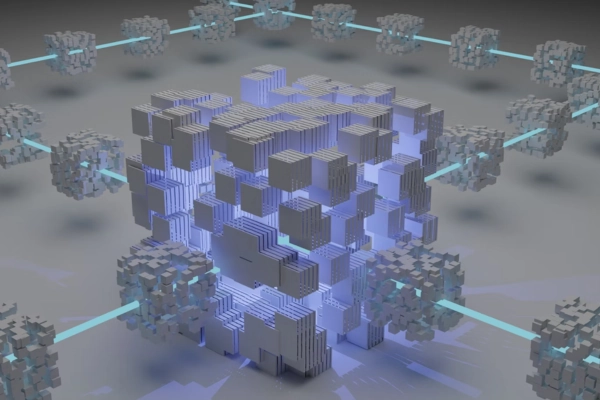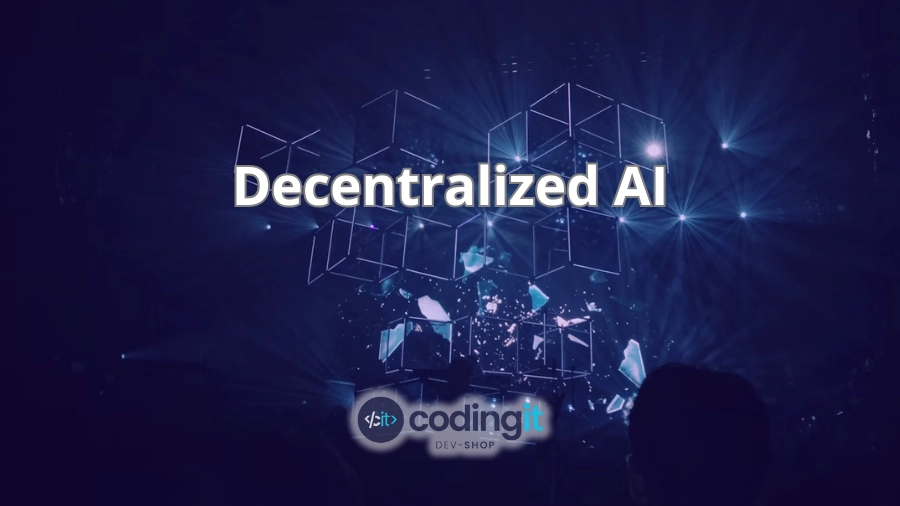It seems like you can’t turn a corner these days without hearing about AI. The solution to every problem you didn’t even know you had. Your favorite app? “Now powered by AI.” That coffee machine you’ve had for years? Apparently, it’s smart now—AI-powered, of course. AI is slapped onto products and services like a trendy sticker, and sometimes it’s painfully clear that the people hyping it up don’t have the faintest idea what they’re talking about. But other times, it’s not so obvious. Sometimes the tech is legitimate, the claims are backed, and the hype is—dare we say—deserved.
AI is moving fast. So fast that even people working in the field can struggle to keep up with the latest advancements. New algorithms, new models, new ways of deploying and training AI—it’s a constant flood of innovation. For the average Joe, trying to figure out what’s real, what’s marketing fluff, and what’s genuinely groundbreaking can feel like trying to solve a Rubik’s Cube blindfolded. And for businesses, missing the right AI trend can feel like falling behind in a race that’s already at full sprint.
So, where do we even begin to untangle this? Today, we’re zooming in on one exciting concept in the AI space: decentralized AI. This isn’t about smarter systems or fancier gadgets; it’s about flipping the script on how AI has been developed and used so far. We’re talking about AI that’s more private and more inclusive.
But what exactly is decentralized AI? How is it different from the AI we’ve been using up until now? And, most importantly, why should you care? We’re here to give you a few details about it and help you get a better picture.

Centralized AI vs. Decentralized AI
To understand why decentralized AI is such a big deal, we first need to look at what we’re breaking away from. For years, the dominant model has been simple: all roads lead to Big Tech. In this setup, huge companies hold the keys to the kingdom. They own the data, control the algorithms, and dictate how AI is deployed. When you use an AI-powered app or service, your data is sent to massive servers, processed, and then—if you’re lucky—you get something useful in return.
This model works great… For them. They get all the data, all the insights, and all the power. But it comes with big problems for everyone else: privacy concerns, vulnerability to breaches, high costs, and an ever-widening gap between tech giants and the rest of us.
Decentralized AI flips this script. Instead of relying on one central hub to store and process everything, decentralized AI spreads out the workload. It distributes data, computation, and decision-making across a network of devices or nodes. No single point of failure, no data-hoarding overlords, just a more collaborative, democratic system.
Why Decentralization Matters
Okay, decentralization sounds nice in theory, but why does it matter in practice? Well, let’s start with privacy. In the centralized model, your data is often shipped off to a server you know little about, processed in ways you don’t fully understand, and stored for longer than you might like. With decentralized AI, your data stays local—on your device, in your hands. This minimizes exposure to breaches, snooping, and misuse.
But it’s also about control. Decentralized AI lets individuals and smaller organizations retain ownership of their data and even their computing power. Imagine an AI system where your phone, laptop, or IoT device isn’t just a passive consumer but an active participant in the network. Suddenly, the balance of power shifts from the few to the many.
It also addresses one of the biggest issues with AI today: accessibility. Centralized AI systems are resource-intensive and expensive to build, meaning they’re largely out of reach for smaller players. Decentralized AI lowers the barriers, creating opportunities for innovation in places that were previously left out of the AI boom.
How Decentralized AI Works
The magic behind decentralized AI lies in a combination of technologies that enable collaboration without a central authority. The main ingredients? Blockchain, federated learning, and edge computing. Together, these technologies create an ecosystem where devices collaborate to train and deploy AI without anyone needing to surrender control. Or their data.
- Blockchain acts as a trustless backbone, ensuring that data and computations are secure, transparent, and verifiable. Think of it as a digital ledger that keeps everyone honest.
- Federated learning allows AI models to be trained locally on individual devices. Instead of uploading your data to a central server, the model learns directly on your device and then sends only the updates back to the network.
- Edge computing takes it one step further, processing data as close to its source as possible. This means less latency, better efficiency, and no need to rely on far-off data centers.

Your Compute is Involved Too
Decentralized AI goes beyond where your data is stored. We shouldn’t underestimate who does the computing. In centralized systems, computation happens on powerful, centralized servers. But decentralized AI invites your devices to join the action.
Your phone, laptop, or even your smart fridge can become part of the network, contributing processing power to train and run AI models. We are not talking theoretically. Some platforms are already using this model to create decentralized networks for machine learning.
It’s a win-win: your device gets smarter while contributing to the collective intelligence of the network. And because everyone is pitching in, the system becomes more robust, efficient, and democratic.
Benefits of Decentralized AI
Let’s get to the part you really care about: what’s in it for your business? Decentralized AI offers some clear advantages that can impact your bottom line and future-proof your operations.
- Privacy Without the Headaches: Imagine being able to train AI models on sensitive customer data without ever sending that data to a third party or a central server. Decentralized AI enables just that. Your clients’ data stays with them, or on your company’s edge devices, making compliance with privacy regulations like GDPR and CCPA far simpler.
- Reduced Costs, Better Efficiency: Building or relying on centralized AI systems often means heavy investments in cloud infrastructure, storage, and compute power. Decentralized AI spreads the load across devices already in use, minimizing the need for expensive centralized servers. For startups or SMBs, this opens the door to leveraging AI without breaking the bank.
- Faster Decision-Making: In industries where real-time decisions are critical (e-commerce, healthcare, or logistics, among others) latency can be a killer. Decentralized AI processes data locally, on the edge, meaning insights and actions happen faster. No lag, no bottlenecks, just instant responses when it matters most.
- A Competitive Edge with AI Ownership: Unlike traditional AI systems where you’re often locked into a vendor’s ecosystem, decentralized AI gives you control. You own the data, the models, and the compute. This independence lets you innovate faster and build solutions tailored to your business, rather than being stuck with one-size-fits-all tools. We too know how important custom development is.
- Accessible AI for Growth: If you’re in an emerging market or operating on tighter margins, centralized AI may feel out of reach. Decentralized AI levels in the playing field, giving businesses of all sizes access to advanced capabilities. It’s about setting yourself up for long-term growth.
Limitations of Decentralized AI
As promising as decentralized AI sounds, it’s not going to be a walk in the park. Every groundbreaking concept comes with its share of hurdles, and decentralized AI is no exception. While it opens the door to a more private, inclusive, and efficient AI future, there are some significant challenges that both leaders and businesses need to consider before diving in.
Coordinating AI across countless devices is no small feat. Centralized systems shine in their ability to process massive amounts of data in one place, whereas decentralized networks face potential bottlenecks as they scale. For businesses, this could mean slower performance or higher costs when scaling operations to enterprise levels if they don’t have the right infrastructure or expertise in place.
Decentralized AI often involves a mix of platforms and technologies that don’t always play well together. Without universal standards, ensuring seamless integration with your existing systems can be a complex—and expensive—task. For many businesses, this lack of cohesion could pose a barrier to entry.
While these systems excel at privacy, their very nature creates legal gray areas. Regulations like GDPR require clear accountability, which can be tricky in a network without a single controlling entity. Companies must tread carefully to ensure compliance while leveraging the benefits of decentralization.
Empower Your Business
Navigating the world of technology can feel overwhelming, but you don’t have to figure it out alone. At CodingIT, we specialize in turning complex tech challenges into practical, profitable solutions tailored to your needs.
From resources to implementation, we’re here to help you cut through the confusion and move confidently toward your goals. Whether you’re exploring a new technology or solving an ongoing issue, let’s tackle it together—and make your vision a reality. Contact us and we can find the solution you have been looking for together.
